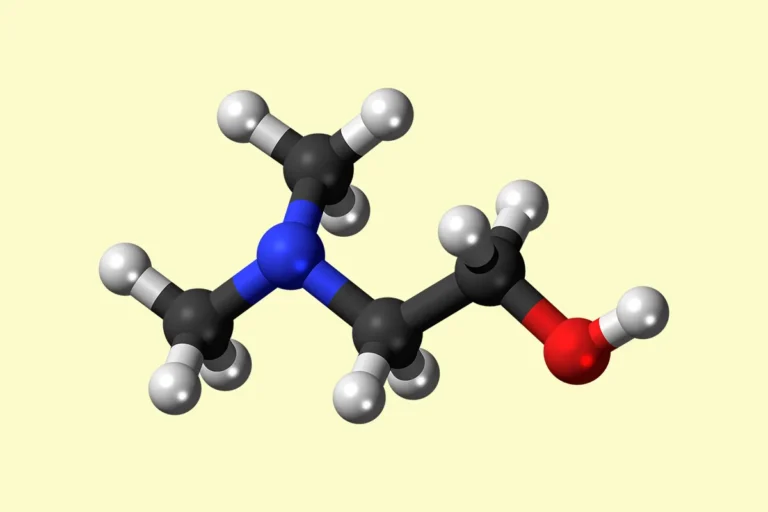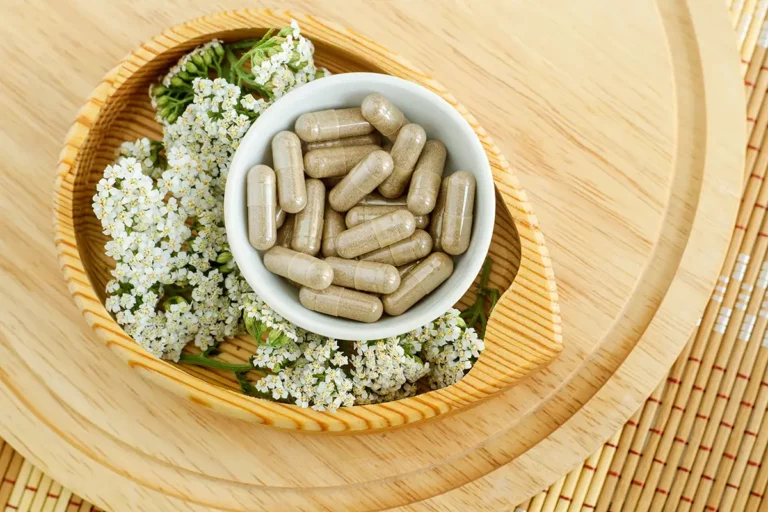Did you know that DIMETHYLAMINOETHANOL has a host of benefits as a nootropic? Also known as DMAE bitartrate, it is a form of choline that is found in many brain boosting supplements. It helps to increase cognitive function, improve memory and protect the brain from age-related damage. DMAE bitartrate is also known for its anti-inflammatory properties, which can help to reduce the risk of neurodegenerative diseases such as Alzheimer’s disease. While DIMETHYLAMINOETHANOL is generally safe and well tolerated, it does have a few side effects which you should be aware of before taking it.

DMAE benefits as a compound that is naturally produced in the human brain. It is also found in fish like anchovies and sardines. DMAE benefits has been shown to increase cognitive function and are often taken as a nootropic supplement. Let’s take a closer look at what DMAE benefits can do for you.
DMAE is short for dimethylaminoethanol. It is a compound that is produced naturally in the human brain. DMAE benefits are also found in fish like anchovies and sardines. DMAE benefits have been shown to increase cognitive function and are often taken as a nootropic supplement.
DMAE benefits have been shown to improve cognitive function, memory, and focus. It can also help to reduce inflammation and anxiety. DMAE benefits as a powerful antioxidant that can help to protect your cells from damage.
DMAE benefits work by increasing levels of acetylcholine in the brain. Acetylcholine is a neurotransmitter that plays an important role in memory, learning, and other cognitive functions.
Yes, DMAE benefits are considered safe when taken as directed. Side effects are rare but may include stomach upset, headache, dizziness, or skin irritation. If you experience any of these side effects, stop taking DMAE and talk to your doctor.
DMAE is a compound that offers many cognitive benefits. It is safe when taken as directed and side effects are rare. If you are looking for a nootropic supplement to improve your memory, focus, or other cognitive functions, consider trying DMAE benefits.

DMAE benefits as a compound that is naturally produced in the brain. It is also found in fish like anchovies, sardines, and salmon. DMAE has many benefits, including improved cognitive function, reduced inflammation, and improved skin health. However, there are also some side effects associated with DMAE supplement use. Let’s take a closer look at some of the potential side effects of DMAE benefits supplementation.
One of the most common side effects of DMAE supplementation is drowsiness. This can be caused by the body’s increased production of acetylcholine, which is a neurotransmitter that plays a role in sleep regulation. If you experience drowsiness after taking a DMAE supplement, it is best to take it at night before bedtime.
Another common side effect of DMAE supplementation is headaches. This is likely due to the fact that DMAE can increase blood flow to the brain. If you experience headaches after taking a DMAE supplement, it is best to drink plenty of water and get some rest. You may also want to try taking an over-the-counter pain reliever like ibuprofen or aspirin.
Some people may experience nausea after taking a DMAE supplement. This is likely due to the fact that DMAE can increase stomach acid production. If you experience nausea after taking a DMAE supplement, it is best to drink plenty of fluids and eat small meals throughout the day. You may also want to try taking an over-the-counter anti-nausea medication like meclizine or Dramamine.
DMAE is a compound that offers many potential benefits, including improved cognitive function, reduced inflammation, and improved skin health. However, there are also some potential side effects associated with its use, including drowsiness, headaches, and nausea. If you experience any of these side effects after taking a DMAE supplement, it is best to drink plenty of fluids and get some rest. You may also want to try taking an over-the-counter medication like ibuprofen or aspirin for headaches, or meclizine or Dramamine for nausea.

The Cosmetic Ingredient Review (CIR) has announced that DMAE bitartrate is no longer allowed to be used in skincare products. DMAE bitartrate is an ingredient that has been used in a variety of skincare products for its anti-aging properties. So, what does this mean for the skincare industry? Let’s take a closer look.
DMAE bitartrate is a derivative of dimethylaminoethanol (DMAE), which is a substance that occurs naturally in the human brain. DMAE has been shown to have anti-inflammatory and antioxidant properties. DMAE bitartrate is often used in skincare products because it is thought to help reduce the appearance of fine lines and wrinkles.
The CIR is an independent panel of scientific experts who assess the safety of ingredients used in cosmetics. The CIR relies on data from clinical studies, as well as input from the cosmetic industry, to make its decisions. After reevaluating the available data on dmae bitartrate, the CIR has decided to ban its use in skincare products.
The CIR’s decision to ban dmae bitartrate will likely have a ripple effect on the skincare industry. Many skincare companies use dmae bitartrate in their products, so these companies will now have to find alternative ingredients to use in its place. Additionally, this decision may cause some consumers to question the safety of other ingredients used in skincare products.
The CIR’s decision to ban dmae bitartrate from being used in skincare products is sure to have a significant impact on the industry. Many companies will have to reformulate their products, and some consumers may start to question the safety of other ingredients used in skincare products. Only time will tell how exactly this decision will play out in the long run.
DIMETHYLAMINOETHANOL is an important supplement for many people. It helps with a lot of things like focus, energy, and more. But how do you know how much to take? The answer is different for everyone, and it depends on a few factors. In this blog post, we’ll go over how to determine the right DMAE benefits dosage for you.
There are a few things to consider when determining how much DMAE benefits to take. The first is your weight. Generally speaking, the heavier you are, the more DMAE benefits you’ll need to take in order to feel its effects. The second is your tolerance. If you’ve taken DMAE benefits before, you may need to increase your dosage in order to feel its effects. Third is the reason you’re taking DMAE benefits. If you’re taking it for energy, you’ll likely need a higher dose than if you’re taking it for focus or concentration.
Determining the right DIMETHYLAMINOETHANOL dosage can be tricky, but it’s important to get it right. The amount you take should be based on your weight, tolerance, and the reason you’re taking DIMETHYLAMINOETHANOL. With that said, start with a lower dose and increase as needed until you find the perfect amount for you.
You may not have heard of DIMETHYLAMINOETHANOL, but chances are you’ve consumed it in the form of certain foods. So what is this substance, and why is it in our food? Let’s take a closer look.
DIMETHYLAMINOETHANOL is a compound that occurs naturally in a variety of plant and animal tissues. It’s also found in small amounts in some foods, such as fish, meat, and dairy products. In the body, DIMETHYLAMINOETHANOL is metabolized into choline, which is a essential nutrient for health. Choline is involved in many important biological processes, including cell membrane structure, nerve function, and lipid metabolism.
DIMETHYLAMINOETHANOL has been added to a variety of processed foods as a flavor enhancer or preservative. It’s also used in some cosmetics and personal care products. While the FDA has determined that DIMETHYLAMINOETHANOL is safe for use in food, there is some concern that consuming large amounts of this compound could lead to adverse effects.
For example, one study found that high doses of DIMETHYLAMINOETHANOL caused liver damage in rats. However, it’s important to note that the doses used in this study were much higher than those typically found in food. Therefore, more research is needed to determine the safety of consuming DIMETHYLAMINOETHANOL-containing foods.
In conclusion, DIMETHYLAMINOETHANOL is a compound that occurs naturally in a variety of plant and animal tissues. It’s also found in small amounts in some foods, such as fish, meat, and dairy products. In the body, DIMETHYLAMINOETHANOL is metabolized into choline, which is a essential nutrient for health. While the FDA has determined that DIMETHYLAMINOETHANOL is safe for use in food, there is some concern that consuming large amounts of this compound could lead to adverse effects. More research is needed to determine the safety of consuming DIMETHYLAMINOETHANOL-containing foods.
† These statements have not been evaluated by the FDA. This product is not intended to diagnose, treat, cure, or prevent any disease.